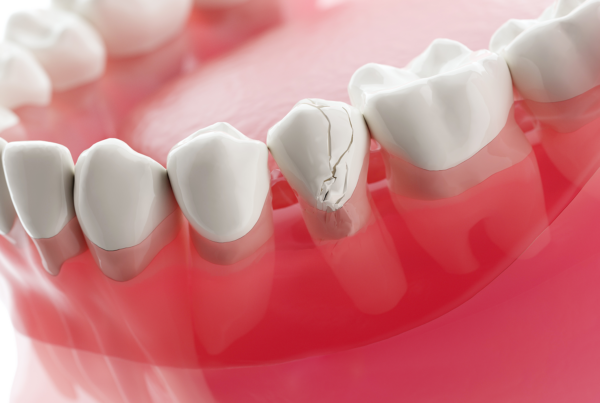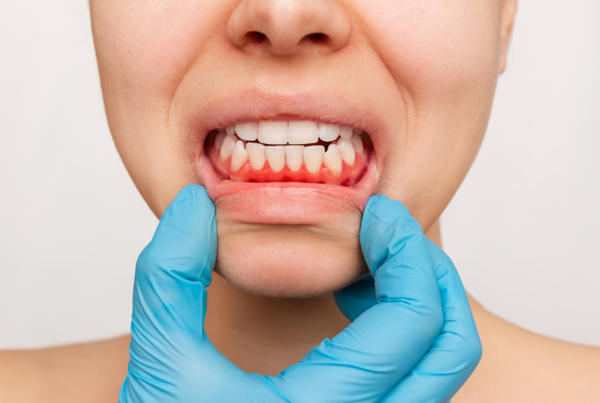Tooth pain can turn an ordinary day into an uncomfortable ordeal. Pain in your teeth is not just a nuisance; it can also be a sign of underlying issues that require professional attention. This blog explores common questions about toothaches, including whether they can resolve on their own, how long they might last, and quick relief methods to manage pain at home.
 Can a Toothache Go Away on Its Own?
Can a Toothache Go Away on Its Own?
It’s a common misconception that toothaches can simply disappear without any intervention. While minor irritations or temporary sensitivities caused by stimuli like cold drinks, hot foods, or sugary snacks might subside once the irritant is removed, these are often just temporary reprieves rather than a sign of resolution. For instance, exposure to cold might cause a sharp, short-lived pain if a tooth is slightly receded from the gum, but removing the cold does not solve the underlying issue of gum recession.
On the other hand, persistent or severe tooth pain is often indicative of more serious dental problems such as cavities, infections, gum disease, or even an abscess. These conditions do not improve without treatment and can progressively worsen. Pain from cavities, for example, may occur because the decay reaches the sensitive inner pulp of the tooth, causing intense discomfort. Such decay requires professional dental intervention to clean out and possibly fill to prevent further damage.
Ignoring a toothache in the hopes that it will go away on its own can lead to worsening conditions. Untreated cavities can enlarge, affecting deeper layers of the tooth and potentially leading to root infections or the need for more extensive procedures like root canals. Infections, if left unchecked, can spread from the tooth to the surrounding bone and tissues, or even enter the bloodstream, posing a severe health risk.
Moreover, tooth pain that is ignored can lead to other dental complications. For example, compensating for pain by chewing differently can cause wear and tear on other teeth, exacerbate joint problems in the jaw, or cause alignment issues. Therefore, it’s essential to consult with a dentist if your toothache persists for more than a day or is severe in nature. A timely visit to your dentist not only relieves pain but can prevent the need for more complicated and expensive treatments down the line.
Remember, while some very mild forms of tooth discomfort might resolve on their own, any tooth pain that is persistent, severe, or associated with symptoms like swelling, redness, fever, or pus is a signal from your body that professional attention is needed. A proactive approach to dental care is the most effective way to ensure oral health and prevent the escalation of common dental issues.
 How Long Can a Toothache Last?
How Long Can a Toothache Last?
The duration of a toothache can vary depending on its cause. Temporary toothaches caused by minor issues may last from a few hours to a day. If the pain after exposure to cold or hot foods persists for more than a couple of days, it could indicate tooth decay or a deeper problem.
Chronic toothaches, which are consistent and painful, could last until the underlying issue is addressed. These kinds of pains suggest serious dental health problems that require immediate professional treatment. If your tooth pain lasts longer than 1-2 days, it’s advisable to see your dentist to avoid complications.
 What Is the Fastest Way to Stop a Toothache at Home?
What Is the Fastest Way to Stop a Toothache at Home?
While home remedies are not a cure for underlying dental issues, they can provide temporary relief as you wait for your dental appointment. Managing tooth pain effectively can reduce discomfort and prevent complications until professional care is available. Here are some effective methods to alleviate tooth pain quickly:
Cold Compress
Applying a cold compress to the outside of your cheek near the sore area can help reduce swelling and numb the pain. This method is particularly effective for injuries or swellings, including those from dental surgery. The cold helps constrict blood vessels, which can lessen the severity of the pain and prevent further inflammation.
Salt Water Rinse
A salt water rinse is a traditional remedy that performs well in multiple scenarios. Mix a teaspoon of salt in a glass of warm water and swish it around your mouth for about 30 seconds before spitting it out. This can help reduce swelling, clean away irritating debris, and even reduce bacterial counts in the mouth, lessening the risk of infection.
Over-the-Counter Pain Relievers
Non-prescription medications like ibuprofen or acetaminophen are effective for reducing tooth pain and inflammation. These should be used according to the recommended dosage, and it’s wise to consult your dentist if you have any doubts about their interaction with other medications you might be taking.
Clove Oil
Clove oil contains eugenol, which is a natural anesthetic and antibacterial. Just a small dab of clove oil applied to the affected area can temporarily reduce pain. It’s important to use a small amount as too much can be irritating to the gums.
Garlic Paste
Garlic has medicinal properties which include pain relief and bacteria reduction. Crushing a garlic clove into a paste and applying it to the affected area can help alleviate pain. However, this should be used with caution as garlic can also cause irritation if applied directly to the gums or mucous membranes.
Hydrogen Peroxide Rinse
A rinse with a solution of hydrogen peroxide mixed with water can help to kill bacteria and relieve discomfort. It’s important to dilute hydrogen peroxide properly—typically a 3% solution mixed in equal parts with water—and to ensure you do not swallow any of the mixture.
Remember, while these home remedies can provide temporary relief, they do not address the root cause of your toothache. It’s crucial to follow up with your dentist as soon as possible to treat the underlying issue. Delaying professional care can lead to more serious conditions, turning a simple remedy into a more complex dental procedure.
 Conclusion: Don’t Wait—Visit Your Dentist Today
Conclusion: Don’t Wait—Visit Your Dentist Today
Experiencing persistent tooth pain is your body’s way of signaling that something is wrong. While some toothaches might seem mild, they can quickly escalate into severe problems without proper care. At our dental office, we’re committed to providing quick, effective solutions to relieve your pain and address the cause.
If you’re suffering from a toothache, don’t hesitate to contact us. Schedule your appointment today to ensure your dental health is in the best hands. Remember, timely intervention is the key to preventing more serious dental issues. Let us help you maintain a healthy, pain-free smile!








